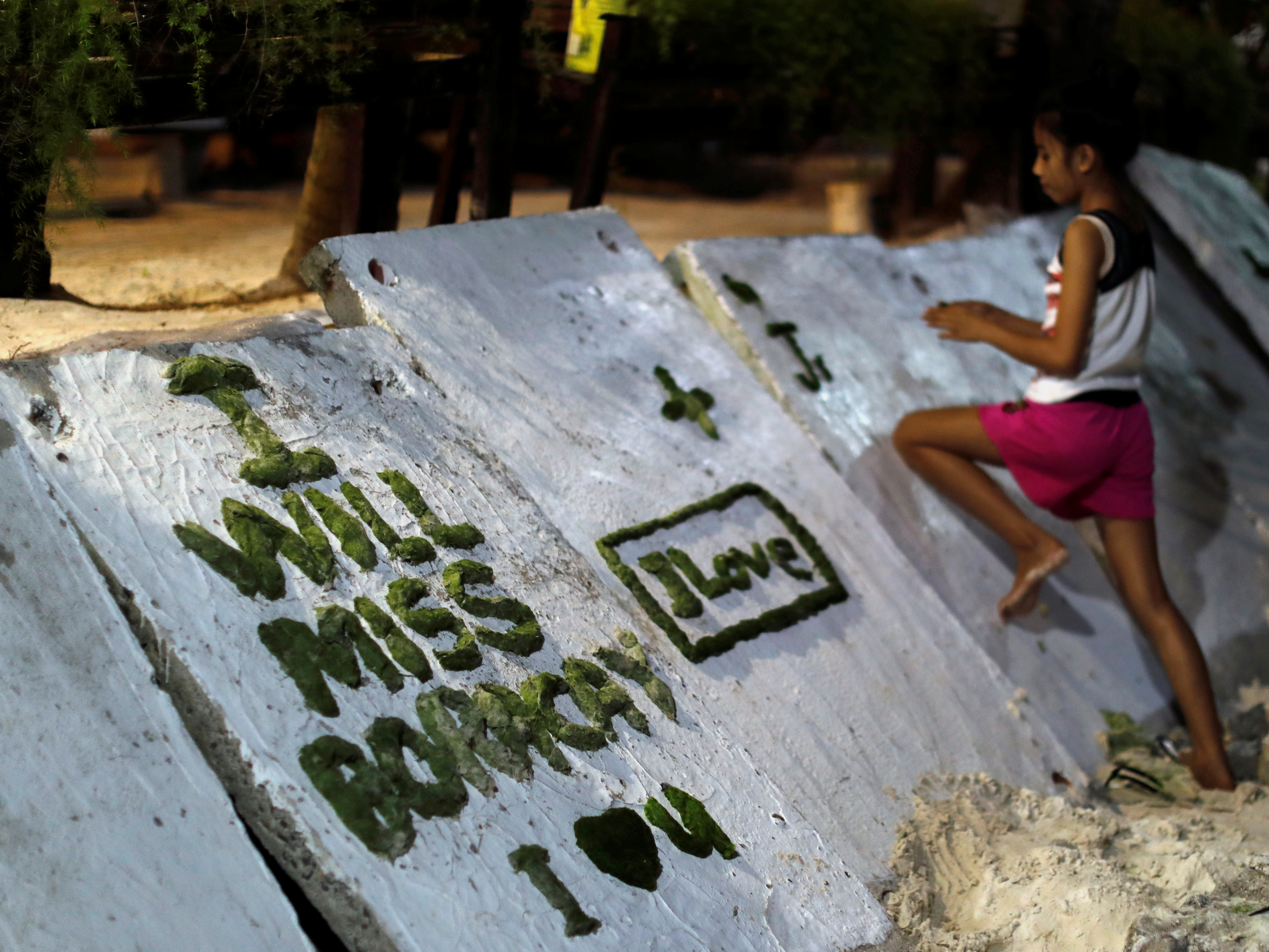Back in the spring of 2018, Philippine authorities made the surprising announcement that Boracay, a small island in the Philippines, would be closing for six months. The reason was simple: major tourism had led to an overflow of waste and sewage that was destroying the natural beauty of the tropical destination.
This week, they announced that the island has reopened – but if authorities have their way, it will likely never be the party destination it once was, according to the Guardian. There are now strict rules and regulations hotel owners have to follow to ensure that Boracay stays protected.
Take a look at the journey the island has been through, from near-total destruction to a peaceful paradise once more.
As a popular destination, Boracay received about two million tourists a year, with 40,000 visitors there during peak time.

Although tourists were spending about $1 billion a year, they were also leaving behind a huge amount of garbage, as well as an overflowing sewer system. The island was overcrowded and in the midst of destruction.
In April 2018, after years of devastation, the Philippine president ordered visitors off the island so they could start to close it down for rebuilding after calling it a "cesspool."

The president, Rodrigo Duterte, wanted everyone off the island so that they could set up and enable facilities to treat raw sewage found in the water.
Many locals were relieved that the beach was closing.

"Local government officials have been so negligent. They don't know how to manage and protect this island," tour boat owner Varril Santa told Reuters in April. "It would be better if the national government can run this island. It's better for Boracay, it's better for our tomorrow."
Duterte accused the island's hotels and restaurants of dumping sewage directly into the sea.

Officials said that the island's drainage system was being used to send untreated sewage into the sea, and the environment ministry said 195 businesses and more than 4,000 residential customers were not connected to sewer lines.
In March, a video posted by British diver Rich Horner that showed him swimming through a mess of plastic off the waters of Boracay went viral.

The video from Guardian News showed diver Rich Horner swimming through tons of plastic for a few minutes and then showed how the waste mixed with organic matter when settling on the surface, causing a slick of floating garbage.
With no tourists spending money, tens of thousands of workers were left unemployed.

The executive director of The Boracay Foundation, Pia Miraflores, said, "Everyone, big and small, has sacrificed a lot during the six month [closure]."
Some businesses were knocked down or pushed back to create a 32-yard buffer zone from the waterline.

The beach was also cleared of popular vendors, bonfires, and even the builders of the island's famous sandcastles.
This week, authorities announced that after six months of work, Boracay was finally reopened to the public.

Michael A. Martillano, the president of the island's diving association, told the Guardian that the water quality, corals, and marine life had "really improved."
Many changes have been announced, and they are supposed to help cut down on waste and overcrowding.

Water sports like scuba diving and jet skiing have been banned for now as a marine assessment is carried out.
Further, authorities are trying to step away from the party atmosphere the beach has always had and they have permanently closed the three casinos on the island. Drinking and smoking on the beach have been banned, as have beach parties like the famous "LaBoracay."
They are also limiting the amount of tourists allowed on the island at any one time.

New rules say only 19,200 tourists will be allowed on the island at once, something the government will enforce by controlling the number of available hotel rooms.
Officials promise that Boracay will still be "fun," just different.

Martillano said, "It's still going to be fun but the old habits of doing whatever you want, whenever you want to party, that will be the biggest change and probably tough for some people."
The new emphasis is will be to encourage visitors to "have a good time, but also take care of mother nature."

Martillano added, "It's now going to be a different mentality for everyone who will enter Boracay, whether you are a tourist or a local or a worker on the island."
Visit INSIDER's homepage for more.

